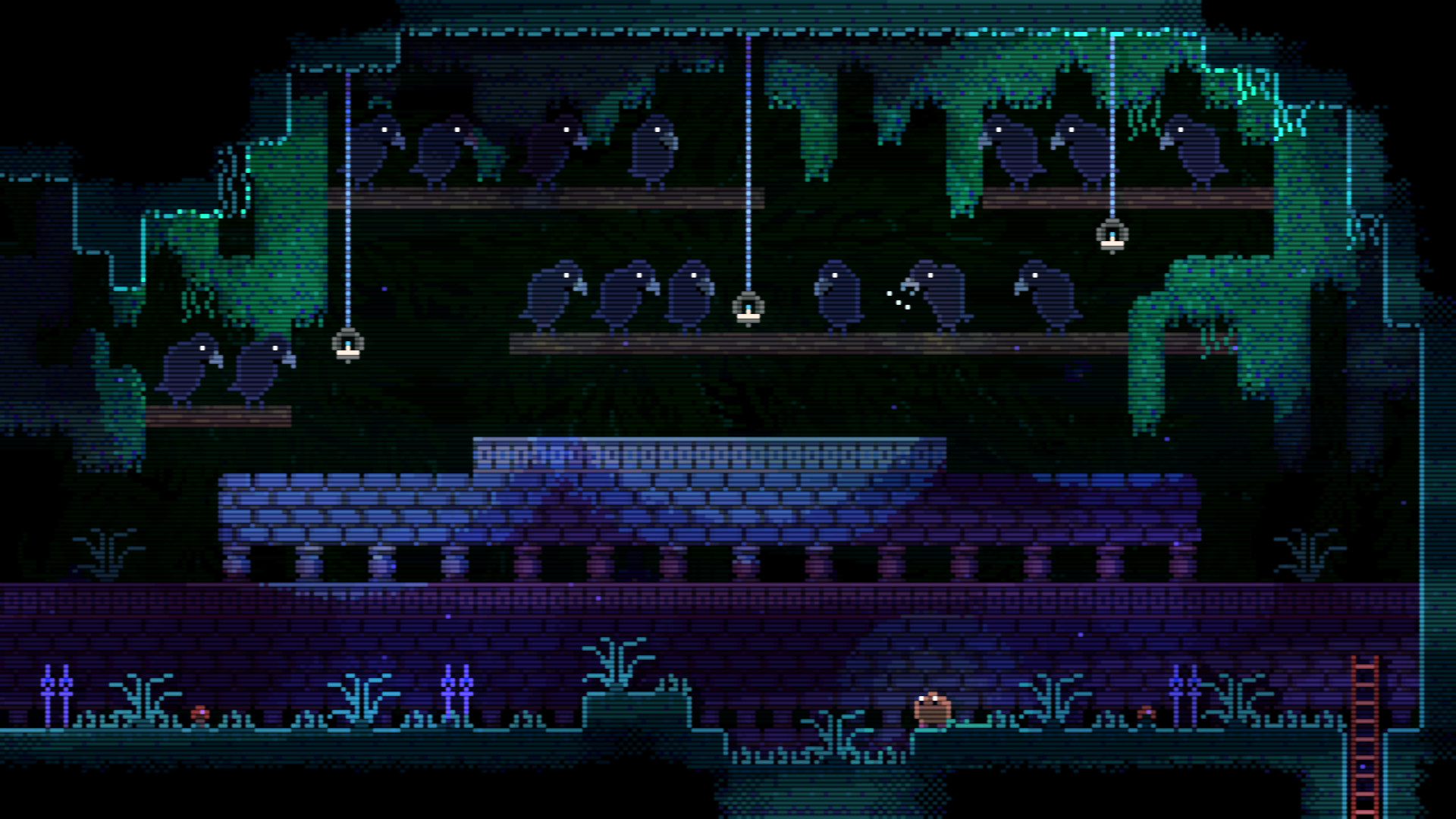How Animal Well uses the PS5 hardware for its new beautiful Metroidvania world
Ray-marched realms

The upcoming puzzle platformer Animal Well has an unusual and vivid art style. That’s because solo developer Billy Basso of Shared Memory utilizes some clever tricks with the PS5 console to bring its expansive game world to life.
Animal Well is the first game to be published by Videogamedunkey’s BigMode publishing company which is coming to PS5 and PC. We’ve known about the game since the summer, but now that a publisher has been secured, we’ll get to play it sooner rather than later.
When we think about what the PS5 can do, we usually consider photorealistic cutting-edge 3D graphics. Animal Well, a 2D experience, uses a form of ray tracing known as raymarching to bring depth of field effects and lighting for the characters and backgrounds.
The full list of techniques is listed on the PlayStation Blog post.
Raymarching acts as a faster version of ray tracing, which is less hardware intensive. This is achieved by the rendering technique dividing rays into smaller segments instead of drawing complete rays. For smaller games like this, especially for 2D titles, it makes much more sense from an efficiency point of view.
“Animal Well is doing a lot of small things that add up to the final result”, explains Basso to PlayStation, and that’s reflected in the gameplay itself. A lot goes into rendering one frame onscreen from the background, midground, and foreground layering with particle effects to dynamic lighting, combined lights, and fluid simulation. Combined, it makes for one of the more visually striking platformers in recent memory.

Do it yourself
Arguably, the most exciting thing about Animal Well’s development is that Billy Basso made an entirely new engine and then built the game inside of it from scratch. That’s something unconventional for indie development, since many smaller studios would use the likes of GameMaker or Unity.
Sign up for breaking news, reviews, opinion, top tech deals, and more.
This progress means that the developer can make it so that the game itself uses incredibly low latency for a game that plays as smoothly as it looks. By creating an engine himself, there’s no need for a buffer you would find as standard with the way stock game engines use the system’s CPU and GPU together.
While certainly not a demanding game, these implementations show how the indie scene is taking steps to use the PS5 hardware in new and exciting ways. It goes to show that big, demanding game worlds with bleeding-edge graphics aren’t the only things that this generation’s gaming hardware can do.

Formerly TechRadar Gaming's Hardware Editor, Aleksha McLoughlin is now a freelance writer and editor specializing in computing tech, video games, and E-commerce. As well as her many contributions to this site, you'll also find her work available on sister sites such as PC Gamer, GamesRadar, and Android Central. Additionally, more of her bylines can be found on Trusted Reviews, Dexerto, Expert Reviews, Techopedia, PC Guide, VideoGamer, and more.